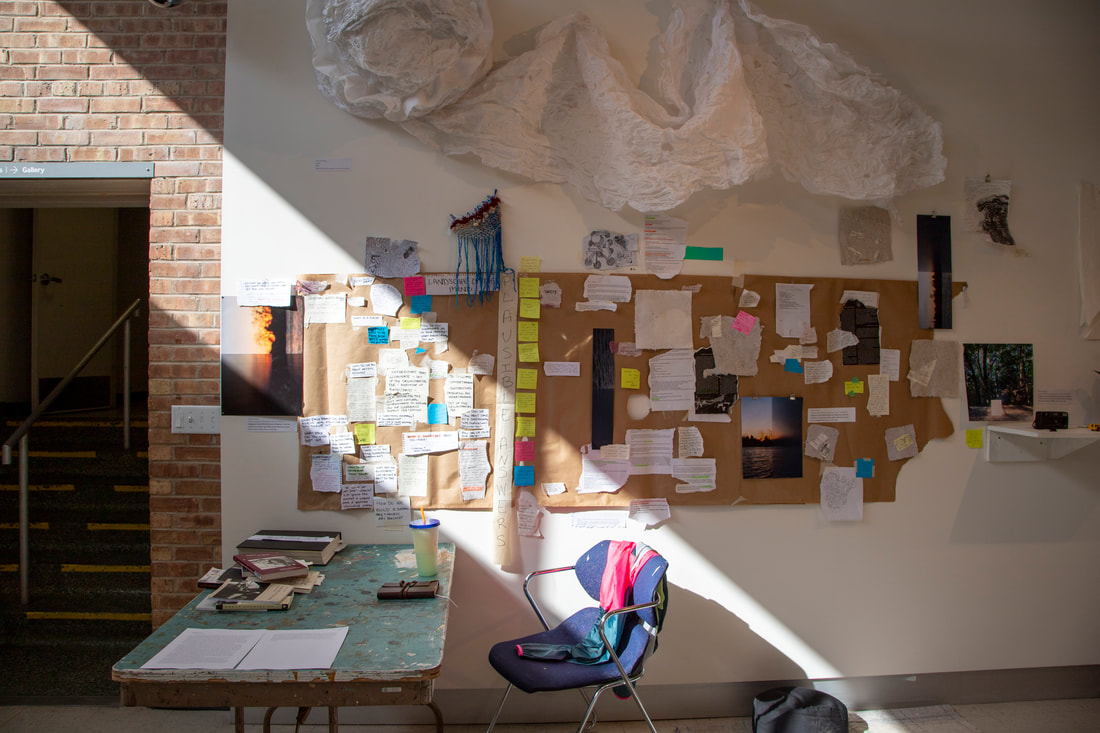Studio
In Studio, I perform my studio in a semi-public space. During my time in grad school, I found myself resisting the model of consumerism and capitalism tied to the laborious production of studio fine art practices which can and continue to be exploited. I wanted to experience a sort of personal freedom from completing a finished artwork that is meant to be sold, packaged, displayed and stored. I realized through previous installations that the gallery feel sterile, like history has been erased, labor has been erased, and all that is left is an aesthetic experience. Do artworks go to galleries to live or die in the eyes of the “public”? Whose public is this? Do I want my artwork in this very particular exclusionary space? The only way I could participate in this system was if I was there with the work. The studio is a sacred space for me. I go to studios to learn about artists and see how they work. To me, a studio is a laboratory. In Studio, I displayed myself working in my ecosystems for viewers to see.
According to Timothy Morton, "Consider the most basic process of capitalism: the turning of raw materials into products. Now for a capitalist, the raw materials are not strictly natural. They simply exist prior to whatever labor process the capitalist is going to exert on them. Surely here we see the problem. Whatever exists prior to the specific labor process is a lump that only achieves definition as valuable produce once the labor has been exerted on it."
Through Studio I created another rule for myself to leave more of my art unfinished to release myself from perfectionism tendencies. I noticed tension and attempted to reframe this for myself as: if I do not complete something, I can learn more from it. I can ask myself more questions. I can accept that like my own life, my practice is not linear.
According to Timothy Morton, "Consider the most basic process of capitalism: the turning of raw materials into products. Now for a capitalist, the raw materials are not strictly natural. They simply exist prior to whatever labor process the capitalist is going to exert on them. Surely here we see the problem. Whatever exists prior to the specific labor process is a lump that only achieves definition as valuable produce once the labor has been exerted on it."
Through Studio I created another rule for myself to leave more of my art unfinished to release myself from perfectionism tendencies. I noticed tension and attempted to reframe this for myself as: if I do not complete something, I can learn more from it. I can ask myself more questions. I can accept that like my own life, my practice is not linear.
Morton, Timothy. “The End of the World.” Essay. In Hyperobjects: Philosophy and Ecology after the End of the World, 111. Minneapolis, USA, Minnesota: University of Minnesota Press, 2013.
